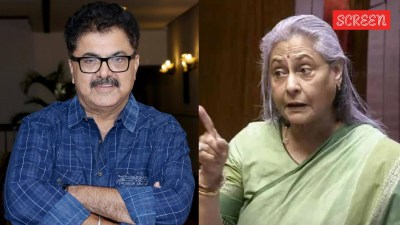After an arrest
The arrest of Sarabjot Singh known to friend and foe alike as Sweety the son of former Union Home Minister Buta Singh...
The arrest of Sarabjot Singh known to friend and foe alike as Sweety the son of former Union Home Minister Buta Singh on charges of soliciting bribes is more than another nail in the coffin of Buta Singhs career. It is also likely to focus attention again on the nature of the National Commission for Scheduled Castes and Scheduled Tribes,which Singh now heads as well on the uses and abuses of the law which gives the commission its power,the Scheduled Castes and Scheduled Tribes (Prevention of Atrocities) Act of 1989. The SC/ST Act was discussed recently following UP Congress president Rita Bahuguna-Joshis shocking outburst at Mayawati; that followed the payment of Rs 25,000 to Dalit victims of rape,under the SC/ST Act.
The allegations against Sweety Singh are serious; and,in investigating them,the law should take its regular course,free from political intervention or pressure. But the allegations are serious: that Sweety went to Ramraj Patil,a contractor for the Nasik Municipal Corporation,and offered to arrange for a troublesome case to be closed if Patil paid Singh a few crores. The twist: the case against Patil was filed by a group of about a hundred people,mainly former employees,who accused Patil of taking a loan from their group kitty and then making off with the money; and,as the employees were Dalits,the case was under the SC/ST Act,meaning that it,until admitted in court,should have been shepherded along by the commission headed by Sweetys father. The need the SC/ST Act was addressing is clear: a police mechanism that,at the first point of contact,is frequently unfriendly to reports of atrocities against Dalits because they are Dalits. The Commission is meant to ensure that the spirit of the act getting the legal process working for the oppressed stays alive,that FIRs are registered and competent,senior officials are in the loop. Whether the dispute,as reported,is the sort of atrocity that the original framers of the legislation had in mind is open to debate.
But the SC/ST Act is increasingly being used in this manner,as it raises the stakes in terms of punishment and practically reverses the burden of proof. That also creates much opportunity for discretion,of the sort that Sweety Singh is alleged to have claimed he could have exercised.
The act is an important arsenal in Indias continuing attempt to mainstream historically disadvantaged sections of society. If it is to be kept useful,allegations of misconduct,of any sort,should be investigated with the vigour that the act expects from the state.
- 01
- 02
- 03
- 04
- 05































